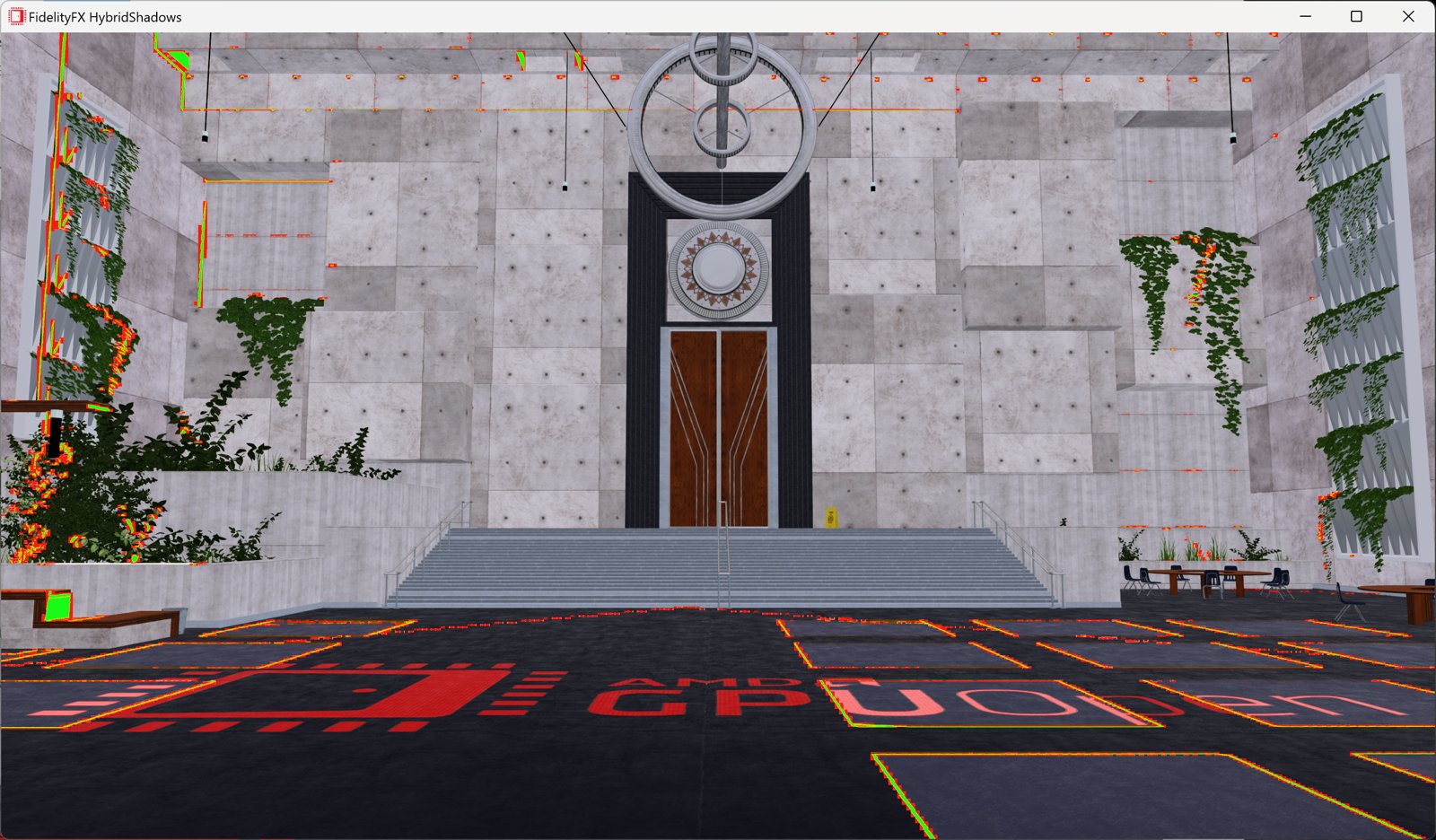
AMD FidelityFX™ Hybrid Shadows sample
This sample demonstrates how to combine ray traced shadows and rasterized shadow maps together to achieve high quality and performance.

Following a brief spell in our beta driver, we’re delighted to announce that support for the following new Vulkan® ray tracing extensions is now available in our main Radeon™ Adrenalin driver 20.11.3 onwards:
VK_KHR_acceleration_structure
VK_KHR_ray_tracing_pipeline
VK_KHR_ray_query
VK_KHR_deferred_host_operations
VK_KHR_deferred_host_operations extension itself does not specify any commands as deferrable.VK_KHR_pipeline_library
In addition to the ray tracing extensions above, there’s also now support for:
VK_KHR_shader_terminate_invocation
SPV_KHR_terminate_invocation SPIR-V extension. The SPIR-V extension introduces a new instruction OpTerminateInvocation that allows a shader invocation to immediately terminate, which provides the behavior required by the GLSL discard statement.Our Vulkan® Memory Allocator library is already compatible, as VkAccelerationStructures are created on top of VkBuffers.
Download the 20.11.3 Radeon™ Software Adrenalin Edition driver from AMD.com